Howto Series | #2 — What makes a scientific post stimulating
In my last post, I discussed about creating an irresistible photography content where hopefully, it'll get curators to kill (figuratively) for curation.
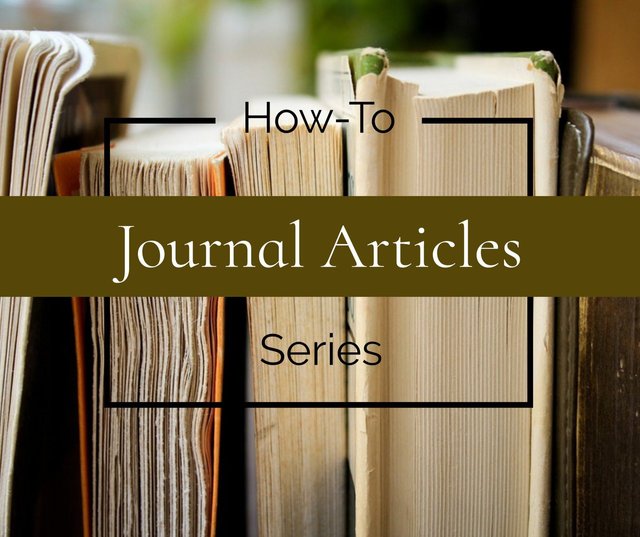
Being a curator trains me to have a quick eye for great contents and decide if they're worthy of curation or whitelist (for Smartsteem).
So in this issue, I'll share on some tips which makes a scientific piece beguiling, which isn't exactly a bad thing by the way.
The Consult
So far, I have some Steemians who approached me to ask for feedback on their work in Discord, instead of leaving the links in the comments section. Perhaps it's not exactly a good idea to share the links and feedback in the comments section, as I would have thought?
I figured that it's probably quite an insensitive request for me to ask to leave the links in the comment section since not everybody is okay to be pinpointed of their work, not especially when you need to deal with the public attention.
If you feel more comfortable asking questions in Discord, it's probably a better alternative.
The Dos and Don'ts
Do: If you're criticising an article, be sure to do it professionally and constructively
Original post here.
The Oomph Factor:
I picked his article for Curie because I thought he was challenging a flawed notion. Turned out to be one of the best I've curated but you should check out the comments section. Love it or hate it, the author gets you reading, and whether you're agreeing or disagreeing with him, he's caught your attention by merely stating and quoting other researchers and evidence to back his proposals. Insightful, argumentative and thought-provoking, I'd like to see more of this kind if critical analysis. Unfortunately, this could probably be his last writing (I hope it won't be for other critics though!) due to the complicated and backlash the author received in lieu of a positive appraisal for this post.
Don't: Insult the author and trash his/her work
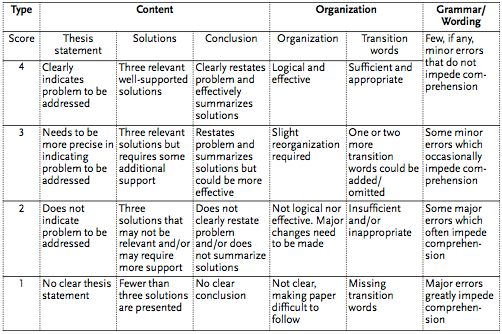
Source
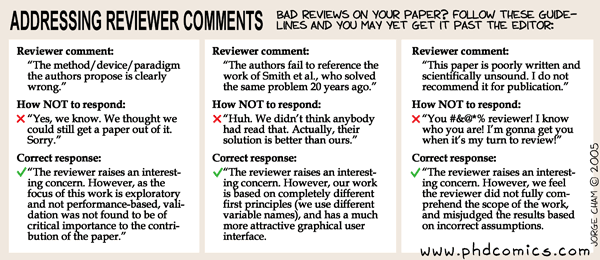
Source
The Yikes Factor:
Because it's not nice to blatantly insult people of their work. Unless you're talking to a plagiarist? Simple as that. You wouldn't like someone to trash your work, don't you? Unless it's a piece of cr@p, you can always work out a constructive argument to counteract a poorly written article. But if the article's plagiarised, be sure to report to the Steem Cleaners. Bonus: You'll get rewarded in the process of doing so too.
Do: Cite the relevant sources
Original post here.
The Oomph Factor:
Contrary to his Steemit handle, @lesshorrible is pretty amazing when it comes to citing his work neatly. Whether you're quoting right off an article or citing your resources as the 'source,' you need to do it right and not just copy and paste the links like what most authors would have done in their writing. Of course, there are no hard rules that you need to cite correctly like the APA citation format, but it will help your readers refer to the additional sources easily and quickly when you hyperlink a word or referencing number like what @lesshorrible has done in his post.
Don't: Copy and paste directly from the source
They all have something in common.
The Yikes Factor:
Many science articles are just reporting the current news and updates. If that isn't turning you off yet, plenty of the articles are uplifted from the Internet— 100%. Some couldn't even be bothered to change or edit the sentences at all. Talk about plagiarism. Speaking of plagiarism, if you don't know about it yet, there are plenty of curators and bots out there to flag your profile if they catch you doing the copy and paste. If you're extracting a quote from an article, best is to cite and link it back to the source (as seen in the image above). Also, if you must, please give the credit where the credit is due. SteemSTEM has also written an elaborated post on copyright issues, so it's important to check it out to avoid getting into trouble.
Do: Approach the article with an interesting perspective
Original post here.
The Oomph Factor:
Like how @nataschachem spins her articles in an entertaining manner, you should take a dive into her pieces and see how she constructs a boring report into an entertaining read. One of the attributing factors that make her article so good is that she organizes it well with bullet points and pictures.
Don't: Write a boring report
Interesting facts but could be better written.
The Yikes Factor:
Because journal articles are scientific and dry, you should not be writing a report that bores the readers even more, unless it's for academic purpose and scientific reporting. Show your readers some love. Let them have the icing on the cake rather than just the crust. Because the crust is hard to swallow, like in this case, the information. Some authors are really talented in writing entertaining and educational articles, I have included their sample writings at the end of this post.
Tips for #science posts:
- Organise your explanation. The drawback of journal articles and scientific posts is that they can be dull and dry to read. Inject wit, clarity, and opinion. Cite them appropriately where the credits are due. However, please avoid the "in a nutshell" phrase. Do we need that cliche?
- Use clear, relevant pictures related to the topic. If you need the charts and diagrams, no hard rules are saying you can't. Spice up that boring article please, and your readers will thank you for it.
- Use more specific tags like steemstem, engineering, or even psychology instead of generic ones like science. The more popular the tag is, the harder it is for you to be spotted for your great work. Imagine a pool full of people. How are you going to swim without being pushed around? In your case and Steemit's, being pushed down into the pool of contents.
- Don't just discuss theories. Nobody likes a theory; it does wonders putting us to sleep. Explain how those theories work. Convert the messages into an application or real-life examples. Think case studies. For instance, if you like talking about business failures and successes, bring in case studies about how the Goliath brands rise from the pits of hell (in business).
- If you're deliberated on psychology and mental health, share your personal stories or stories of someone you knew. Personalization goes a long way in attracting readers' attention, pulling them into your stories and even better, stories that they can all relate to. Everybody loves a good story. Storytelling works, not just for fictional genres but it'll also the dead pieces of scientific journals 🖤
More epic examples of super cool scientific reading materials by:
✰ @terrylovejoy with his intergalactic research and how to set up astronomical imaging to capture bright stars and mind-blowing constellations (including your fav Mars)
✰ @rocking-dave on his interesting insects talk. Read his title and you'll get what I mean.
✰ @pangoli on the wonders of the moon, cheese (really? or was it cheesy talk?) and sky.
✰ @juanjdiaz89 dives in on a difficult topic of dealing with diabetic people and how to deal with Hypoglycemia in this case.
PS: Check out other amazing authors and their works as curated by Curie in the recent authors' showcase.

Image credit: All public domain images are taken from Pexels unless stated otherwise.

These days I mostly write on Steemit.
I still have my portfolio and personal sites— virtuallydebbie.com and debbieang.com.
But these sites will eventually redirect you to my Steemit blog.
Well, what can I say. If it’s good stuff, you can’t get enough of it :)
Follow me and I'll take you through my unpredictable journey— filled with wilderness, curiosity, and randomness.
PS: Join #steemitbloggers to unite with other bloggers and #sfg #steemgigs to partake in the freelancers' clan. Also, check out @kristyglas amazing divider below. Support her work by sharing as she puts in tremendous effort into creating pretty dividers for Steemians.



Animated Banner Created By @zord189

✰ @terrylovejoy with his intergalactic research and how to set up astronomical imaging to capture bright stars and mind-blowing constellations (including your fav Mars)


I still have my portfolio and personal sites— virtuallydebbie.com and debbieang.com.
But these sites will eventually redirect you to my Steemit blog.
Well, what can I say. If it’s good stuff, you can’t get enough of it :)
Follow me and I'll take you through my unpredictable journey— filled with wilderness, curiosity, and randomness.



Animated Banner Created By @zord189

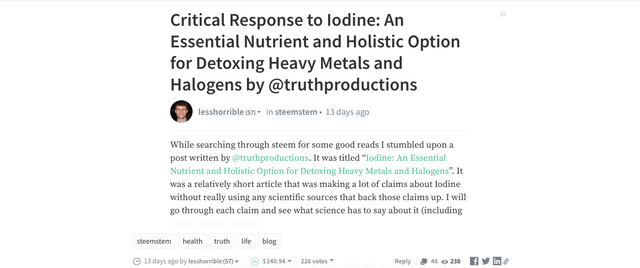
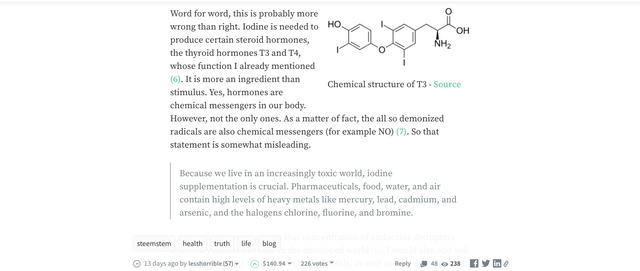
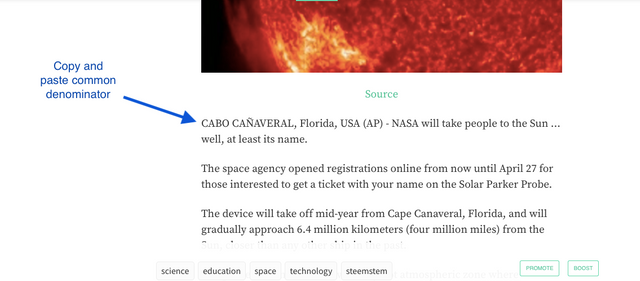
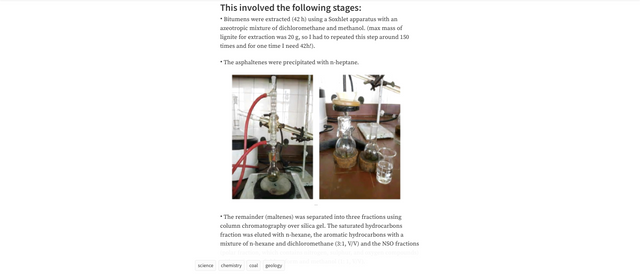
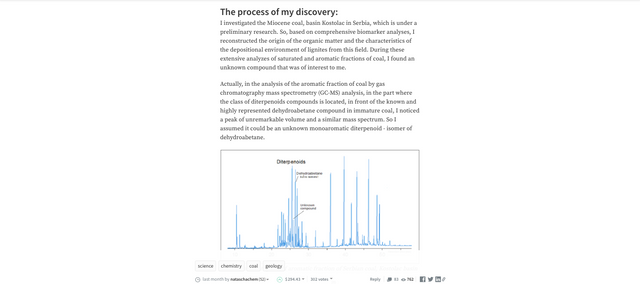
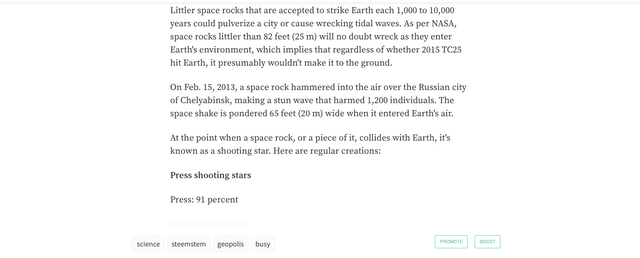
Wow this is a real good Wow-ie "how-to" from you. Mot only you are a good curator, you are awesome content maker. Thank you for the teaching and guidelines here, it certainly helps. 😊
Although I am a Science student, but I am not into writing scientific stuff. Yet this is great guideline. I agree with you to never insult the author. I hope people get to learn it here.
I was a science student too @iamjadeline but I must admit that I don't have the patience to write such a detailed, scientific post. I like reading and curating them too :) And thank you for your compliments... I never felt like I'm as good as you think I am-really... there's just so much to learn but your kind words mean a lot to me as a form of encouragement - thank you :)
worth a 100% upvote for sure, really well put.
The only sad thing is that most plagiarists will not read this...
Only getting demonetised will make them do something (sadly most of the time thats look for another way to scam the system)
You're damn right @felander. That's why we have a great team over at Smartsteem...let's bust them all haha Thanks a lot for your upvote <3
I am just going to come in here and say my opinion and leave. As a steemstem curator I must say... I agree. I mean not to say that I may have worded things or changed things or maybe added more but more importantly is I agree with what is on this list you have made.
To expand on things I would add (so criticisms I guess) is firstly, make certain your information presented is accurate. Quite often I have seen/read a post that has some major inaccuracies. I am not talking about something like they used Newtons definition of Gravity instead of Einsteins (depending on the context that can be acceptable) I mean more that they say something that is false like say "voltage is a measurement of energy within protons". Voltage is not a measurement of energy in the protons but that is beyond the scope of this comment.
Another thing for science articles to keep in mind is length. It is really really difficult to make a really good and moving article that is short... But if your article is extremely long then almost nobody is going to actually read the entire thing. Optimally is between 800-1500 words (my experience) however others might have a differing opinion. A rule of thumb is the skirt rule, keep it short enough that it is interesting but long enough to cover all of the interesting details.
Anyways, those are 2 of the bigger items that should be on this list in my opinion but that by no means does that make this post bad. The other curators might have different opinions upon this subject or not, who knows.
hello @kryzsec , good to have another curator dropping by this post ;) thanks for your constructive feedback and I must say, while I agree with many of your points, I need to clarify on one, which is the length of an article. I deliberately omitted that point because I believe some articles require longer explanation and layout while the others might not need a lengthy post to justify their content. I've also come across articles that are lengthy yet badly written, and short ones but concise and succinct. But I understand where you're coming from this stance and I must agree with you on this...
I noticed that the good ones fall in this range. But I didn't wanna to specify and emphasize on the length because I also don't want authors to vomit those words just to make up the length of the content, at the same time neglecting what's most important - the gist.
True to that. As aforementioned, a short and poorly executed content is a no-go, likewise for the longer form contents. Authors should be focusing in the quality of their gist. Best way is to check whether their key points, explanation and examples will make the readers go 'wow' or 'meh'..
Last but not well, we can all agree that ...
You couldn't have said it better :)
I completely agree that when they just try to find filler then it is just, well its obvious. As well though I find that a lot of posts could add so much more than they do, like they have so much potential and then the word count comes to like 300 ish words and it makes it seem like they didn't try very hard on it.
All in all though, its really awesome that you were open to this discussion, maybe if any of your readers read the comments as well then they can learn something here too!
Great post. Chalk full of very useful information. I've seen a lot of lift and post content and it's disheartening. Hopefully people will find your post and glean the appropriate information to make their science posts more interesting and unique.
You’ve been upvoted by TeamMalaysia Community :-
To support the growth of TeamMalaysia Follow our upvotes by using steemauto.com and follow trail of @myach
Vote TeamMalaysia witness bitrocker2020 using this link vote for witness
@originalworks
Great article! You pointed out clearly what is needed (which, unfortunately does need explanation as so many are clueless) but especially you reminded writers to make the content fun. If it is a bore to read, no matter how good the information it will fail.
Thanks @arbitrarykitten :) I hope this article will give others (esp those who are writing science driven articles) a rough guideline to creating better content. I see quite many who actually copied and pasted the facts so it's kinda sad not only for the creator, the original author but also towards the Steem community.
As someone with a Math degree and someone from science stream, most of the textbooks in university were boring as hell.. wish they could learn from you and sexify their textbooks a bit.
Omg.. didn't know you're doing Math! Your numbers and calculations must be on point ;p I'm gonna ask why you picked that subject...but yeah, math is one real interesting subject. Only the teachers (not all teachers are bad but there are only few good ones) and textbooks are boring... @orangila
Well, advance math usually doesn't deal with numbers, symbols or formula. Very technical theory. One thing I learn from math is problem solving. It challenging one to think outside of the box and look for solutions from different perspective and angles to derive to a conclusion.
you pointed it out very correctly that making scientific articles interesting for the layman requires it be interesting. here's a science article I recently read from @alexdory which I found very interesting
https://steemit.com/mars/@alexdory/can-we-make-enough-breathable-air-in-our-future-mars-colony-colonization-of-mars-series
You're right. I'm checking out his post now and it's super interesting. I love how he structures his post as well :) Thanks for the recommendation... kept him under my radar @svkrulze
Thank you debbie. The do and dont just very helpful.